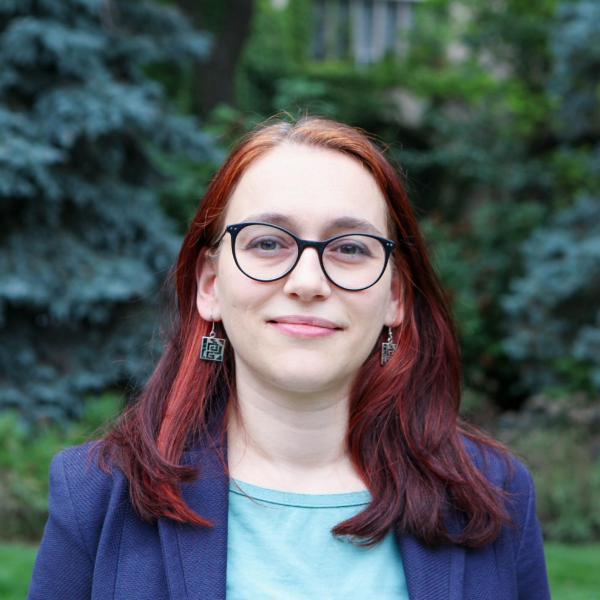
I started my appointment at UChicago in September 2023. I received my PhD from Heidelberg University (Germany) and the University of Helsinki (Finland) in October 2020 with the dissertation Communication and the Origins of Personhood. Before coming to Chicago, I ran a postdoctoral research project titled “Extended Scientific Virtue” funded under the European Union’s Marie Curie Actions. My research focuses on issues at the intersection of philosophy of science, epistemology, and philosophy of mind. I investigate various complementary dimensions of epistemic value in the context of scientific research: what makes a person a good researcher, a group of people a good scientific collective, an epistemic system a good scientific community, a research procedure a good empirical study, and how all these different dimensions come together for epistemically successful science. To this end, I work on (individual and collective) intellectual virtues in science, scientific communities, experimental methodology (testability, theory choice and underdetermination), and applied philosophy of science (replicability crisis, science policy, scientific norms). A key question that guides my research is how the social nature of scientific inquiry can best be utilized to the advancement of scientific knowledge.
I am currently working on a series of articles on values in science and my first book manuscript on the topic of scientific expertise. The book develops a novel conception of scientific expertise that can make sense of certain features of contemporary science such as radically distributed epistemic labor and technological extension of epistemic processes, without sacrificing the notion of epistemic responsibility.
Selected Publications
Tunç, M. N., & Uygun Tunç, D. (2024). Eliminativist induction cannot be a solution to psychology’s crisis. Behavioral and Brain Sciences, 47, e62. https://doi.org/10.1017/S0140525X23002157
Uygun Tunç, D., Tunç, M. N. (2023). Psychology’s Reform Movement Needs a Reconceptualization of Scientific Expertise. Social Psychological Bulletin, 18, 1-32. https://doi.org/10.32872/spb.10303
Uygun Tunç, D., Tunç, M. N., & Lakens, D. (2023). The Epistemic and Pragmatic Function of Dichotomous Claims Based on Statistical Hypothesis Tests. Theory & Psychology. https://doi.org/10.1177/09593543231160112
Uygun Tunç, D. & Tunç, M. N. (2023). A Falsificationist Treatment of Auxiliary Hypotheses in Social and Behavioral Sciences: Systematic Replications Framework. Meta-Psychology, 7. https://doi.org/10.15626/MP.2021.2756
Uygun Tunç, D. (2023). The Subject of Knowledge in Collaborative Science. Synthese,201(3), Article 88. https://doi.org/10.1007/s11229-023-04080-y
Uygun Tunç, D. (2022). We Should Redefine Scientific Expertise: An Extended Virtue Account. European Journal for Philosophy of Science, 12, Article 71. https://doi.org/10.1007/s13194-022-00498-2
Uygun Tunç, D., Tunç, M. N., & Eper, Z. B. (2022). Is Open Science Neoliberal? Perspectives on Psychological Science. https://doi.org/10.1177/1745691622111483
Lakens, D., Uygun Tunç, D.,& Necip Tunç, M. (2022). There is no generalizability crisis. Behavioral and Brain Sciences, 45, E25. https://doi.org/10.1017/S0140525X21000340
Uygun Tunç, D. (2019). Symbolically Mediated Interaction and Perspective Taking. Avant, X(3) [Special Issue: Social Cognition]. https://doi.org/10.26913/avant.2019.03.28
Uygun Tunç, D. (2019). Transformative Communication as Semiotic Scaffolding of Cognitive Development. The American Journal of Semiotics, 35(1–2), 117–154. https://doi.org/10.5840/ajs201971753
Recent Courses
PHIL 23404/33404 Science and Values
Ever since the establishment of modern science, a central topic of discussion is whether and how scientific reasoning differs from political, moral, or philosophical reasoning. One of the traditionally identified unique features of science is its ‘ideal’ of being ‘value-free’. The value-free ideal of science states that scientific reasoning from evidence to theory should not be influenced by social, political, or moral values. In recent decades numerous philosophers of science have concerted that the value-free ideal of science is neither attainable nor desirable. Some of the motivations for this criticism are to promote traditionally underrepresented perspectives such as feminism in science and to rethink the social and moral responsibilities of scientists beyond those understood under scientific integrity. The main upshot of this critique is that scientific objectivity must be redefined in a way that does not imply value-freedom. This course will give an outlook on the central ideas and concepts in the science and values debate and beyond it. The core philosophical discussion will focus on the main arguments for the untenability or undesirability of the value-free ideal and their criticisms. The broader context of discussion will include topics such as the science-society relationship, how scientific expertise and scientifically informed policy relates to democratic governance, public trust in science, and misinformation. Some of the questions that this course aims to answer are:
What features of scientific reasoning makes it open/closed to the influence of social, political, or moral values?
Can science be objective without being value-free?
Is the value-free ideal of science attainable?
In which ways is the value-free ideal of science desirable/undesirable?
Is there a clear-cut distinction between scientific and social values?
Should scientific reasoning take the societal implications of research into account?
Should socially-relevant research be governed by special norms?
What is the significance of the objective image of scientific inquiry for public trust in science? (B)
One previous philosophy course. Open to undergraduate and MA students, and all others with consent.
